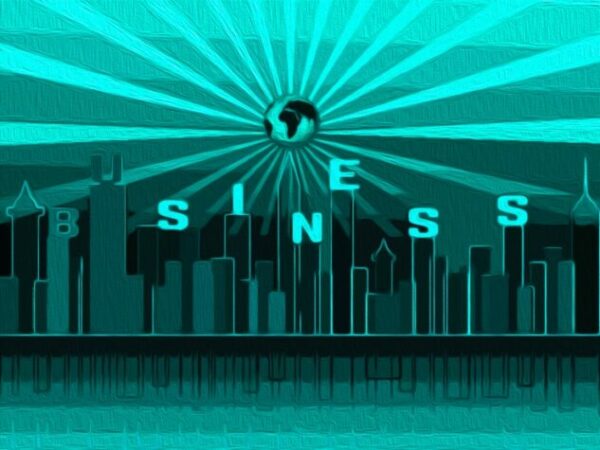[TAG0][TAG1]
- Although Twitter's chaos reign led by Elon Musk may have saved it, there is still much to do.
- On Tuesday, Twitter's boss stated that the company was roughly at break-even after cutting drastic costs.
- If he is looking to make a long-term profit, however, he will not be able to use the same aggressive strategy.
It's possible to forgive the employees of Twitter for feeling as though they are being controlled by chaos agents in the six months since Elon Musk took over Twitter.
Musk's $44 billion stop-start buyout saw most of his C-suite employees fired or walk out. This resulted in a drastic reduction of staff from approximately 7,500 to about 1,500. There was also an exodus of advertisers and numerous lawsuits.
But… Has it worked?
On Tuesday, Twitter's boss said that while "the pain level at Twitter has been very high" since his arrival, the company is "roughly broke even." Musk estimates that the company would have had four months to pay off its cash-flow problems if it had continued on its prebuyout path.
Since Twitter is a private company, we don't have access to quarterly financials so we don't know exactly what "roughly breaking even" means. Musk's comments may be correct, but he will likely use the company's improved financial performance to support his chaotic theory about management and his belief in Twitter's excessive spending.
Twitter is a different beast. It can go from breaking even to being profitable.
Has Helped Twitter Break even?
It was evident that Musk's finances were in serious trouble as he completed the Twitter buyout on Oct 27th.
The company lost $222.4 million in 2021 on revenue of $5.1 billion. This was the last year before Twitter's purchase. Although this was less than the $1.1billion Twitter lost in 2020 it still shows the struggle of the company for consistent profitability.
Musk's management style was "extremely rigid". In just a few short months, he reduced the number of employees from more than 7,500 to just over 1,000. Although it was a difficult ride, the company is now almost operational.
Musk also stated to the BBC that Musk has reduced the number of data centers that it uses from three and two to save money, while improving its algorithm to reduce its computational power requirements.
He suggested that advertisers may not quit permanently, but he also said that some have returned to the station or stated they would. This could potentially keep the one source of revenue that is most important intact.
He stated that "if Disney feels comfortable advertising children’s movies and Apple feels comfortable promoting iPhones, those are both good indicators that Twitter can be a good place for advertising."
At least in the interim Musk proved that Twitter was not going to die by aggressive cost-cutting. Other tech CEOs followed Musk's lead, cutting up to 10% from their respective workforces.
But, chaos won't get you to profit
Musk can't continue cutting costs indefinitely. He will have to find sustainable ways for Twitter to be profitable (and to pay the interest on the loan financing he took out)
These long-term efforts look less solid.
Twitter Blue is a subscription service that allows users to pay for the blue tick which signals noteworthiness. This is a key initiative of the social media boss.
However, the rate of uptake has been slow. Bloomberg reported earlier this month that only 4% of those who visited the Twitter Blue sales website signed up.
Another issue, which could prove fatal: Musk does not seem to know what Twitter should look.
Consider the firm's (reversed!) decision to block likes, retweets and reposts of posts linking to Substack, a rival posting platform. It seems foolish to block news sources that are obvious if Twitter is truly the "what's going on" platform. This decision has resulted in the exclusion of content creators, including Matt Taibbi (a Musk ally) who has not tweeted since April 7.
Similar to this, he took a strong stance against news outlets — particularly liberal outlets — and slapped NPR with a label of "state-affiliated" media. NPR called the labeling "false" but has since ceased Twitter, despite having nearly 9 million followers. After the publication claimed it would not pay for a checkmark, Musk removed verification from NPR's Twitter account.
Musk suggested to the BBC that Twitter's total user time was at an all-time high. The company has recently passed 8 billion user minutes per hour. This is a remarkable feat in an age where Twitter competes against everything, from TikTok and Netflix.
Musk must have users who are loyal to Twitter in order for it to continue making money. Chaos will not do this.
—————————————————————————————————————————————
By: hchowdhury@insider.com (Hasan Chowdhury)
Title: Elon Musk says Twitter is roughly breaking even. That looks like vindication for his haphazard management but that won’t work to make it profitable.
Sourced From: www.businessinsider.com/elon-musk-style-helps-twitter-break-even-but-not-profit-2023-4
Published Date: Thu, 13 Apr 2023 08:45:20 +0000




Leave a Reply